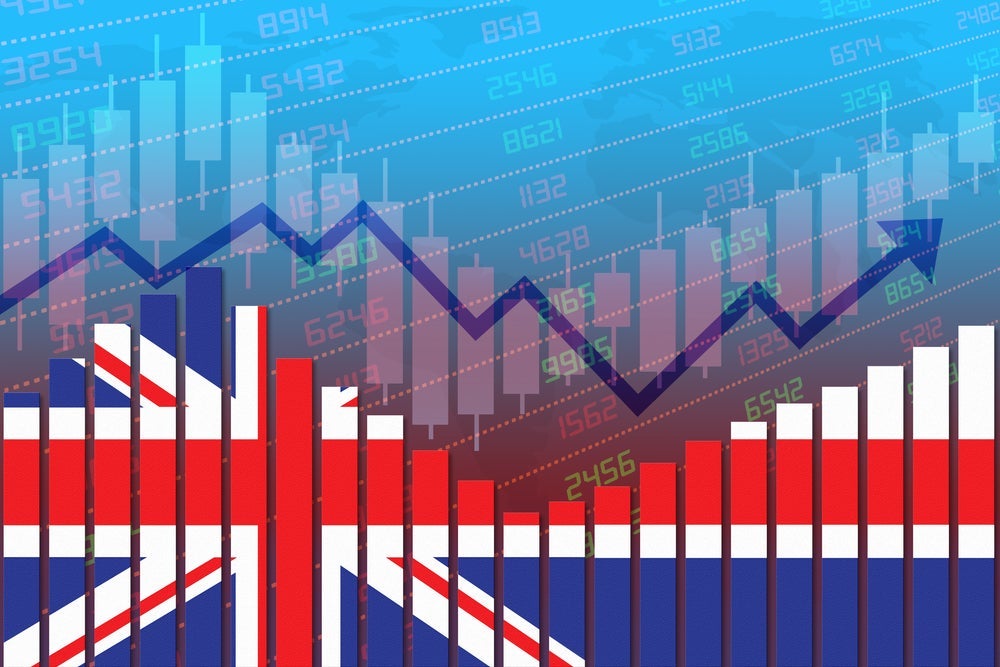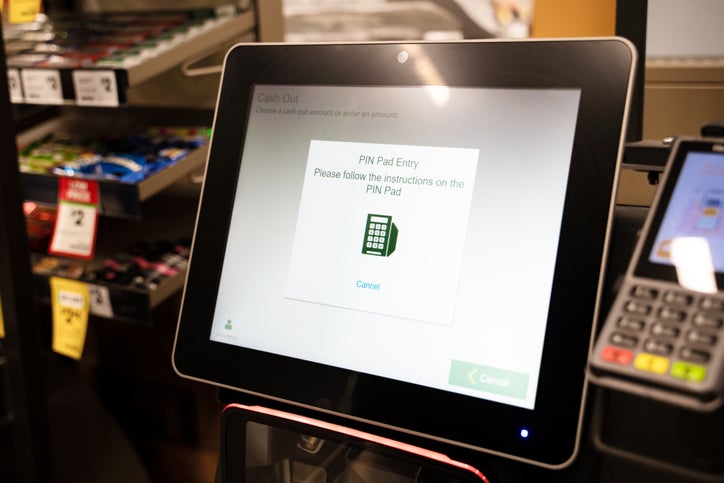
The UK’s inflation rate stood at 6.8% in July 2023. The slowing of inflation (it was 7.9% in June 2023) is primarily due to falling gas and electricity prices. Food and non-alcoholic beverages, although slowing, still represent the largest contributions to the Consumer Price Index (CPI) along with restaurants and hotels. In July 2023, prices rose by 14.8% and 9.6%, respectively. Alcohol and tobacco (9.4%) and health (8.9%) items both rose slightly in July and were the next-largest contributors to overall price rises.
UK inflation peaked in October 2022. Price levels were 11.1% higher compared with October 2021. This represented the country’s highest price rises for more than 40 years. However, since then the rate has fallen almost month on month, albeit at a frustrating slow pace. It is also still significantly far from the UK’s target of 2%.
Are the Bank of England’s interest rate rises working?
One of the primary reasons for the slowdown in inflation is the Bank of England’s increase in interest rates. Generally, there is an inverse relationship between inflation and interest rates. A higher interest rate encourages people to save, taking money out of the economy, lowering the demand for goods and therefore their prices. People also have a lower disposable income as things such as mortgage repayments are increased. However, rising the interest rate to lower inflation is not foolproof.
Increasing rates at the right time is crucial. This can, in part, be attributed to the difference between the US and UK. In May 2022, both the UK interest rate and the US Federal Reserve fund rate (and discount rate) were roughly the same – 1%. However, the Fed acted more quickly, increasing its rates five times before the end of 2022 with a discount rate of 4.5%. On the other hand, the UK interest rate had only risen to 3.5%. Although the rates are now almost equal – the UK interest rate is 5.5% while the US federal fund rate is 5.25–5.5% (as of August 2023) – rate rises in the US have been steeper compared with the UK, where they increased in smaller increments. Inflation in the US peaked at 9.1% in June 2022 and has since fallen to 3.2% in July 2023.
Inflation impact on UK GDP
With the current economic climate, central banks run the risk of their country slipping into a recession if consumer demand drops too much. The UK had been touted by many agencies to enter a recession in 2023. Although this now looks unlikely, growth is expected to be low for the rest of the 2023 and potentially the next couple of years.
However, the UK is not alone in its struggles. Germany entered a technical recession, with two quarters of negative real GDP growth in the final quarter of 2022 and the first quarter of 2023. The US experienced the same in the first half of 2022. However, the US has since been posting the highest real growth, quarter on quarter, within the G7, albeit still below 1%.
How well do you really know your competitors?
Access the most comprehensive Company Profiles on the market, powered by GlobalData. Save hours of research. Gain competitive edge.

Thank you!
Your download email will arrive shortly
Not ready to buy yet? Download a free sample
We are confident about the unique quality of our Company Profiles. However, we want you to make the most beneficial decision for your business, so we offer a free sample that you can download by submitting the below form
By GlobalDataWhy is the UK inflation rate still so high compared with other countries?
The UK has the third-highest inflation rate of any country in the G20. Only Argentina (115.6%) and Turkey (47.8%) have higher rates. Although most countries have been impacted by Russia’s invasion of Ukraine, the UK has seen significant rises in food and energy costs.
Food inflation is currently 14.8%. The UK imports almost half of all the food it consumes.
This means that it is reliant on a steady flow of food coming into the country to maintain stable price levels. The war in Ukraine has seen the prices of various crops and oil rocket. Meanwhile, adverse weather conditions in Spain and North Africa led to UK supermarket shelves experiencing a shortage of certain fruit and vegetables for several weeks.
Similarly, the UK imports about half of its gas consumption, although a significant proportion of this is from Norway. The UK is still heavily reliant on gas to generate power and for domestic heating. Lower gas and electricity prices in July made the largest downward contribution to the change in annual CPI inflation.
Additionally, labour shortages are driving up wage packets to record levels. Latest figures show regular pay grew by 7.8% between April and June 2023. This is the highest annual growth rate since comparable records began in 2001. Higher wages could act as a further trigger for the Bank of England to increase interest rates to bring down price levels.
The UK is also heavily reliant on its financial services sector. This can present some problems in trying to tackle inflation as interest rate rises increase the risk that borrowers will be unable to repay bank loans. Furthermore, the UK is still dealing with economic woes caused by Brexit.
Inflation control is a government priority
The cost of living crisis is heavily felt in the UK. Halving the inflation rate is one of Prime Minister Rishi Sunak’s five priorities for 2023. To do that inflation will need to fall to 5.3% by the end of the year. It’s certainly not impossible, but is 5.3% enough progress? The latest opinion polls give opposition party Labour an average 17-point lead over the Conservatives, highlighting the public’s frustrations with the current government.
The damage may already be done, therefore, with regards to Sunak and his Conservative Party ahead of a probable general election in late 2024. Few expect a Tory majority, although if inflation decreases sharply the damage done at the polls could be lessened considerably. For most Brits, however, simply being able to pay their food and energy bills is all that matters. The news of inflation dipping in July will be welcomed, but there is still a long, long way to go before the British public at large will be breathing easily when calculating their weekly outgoings and incomings.






